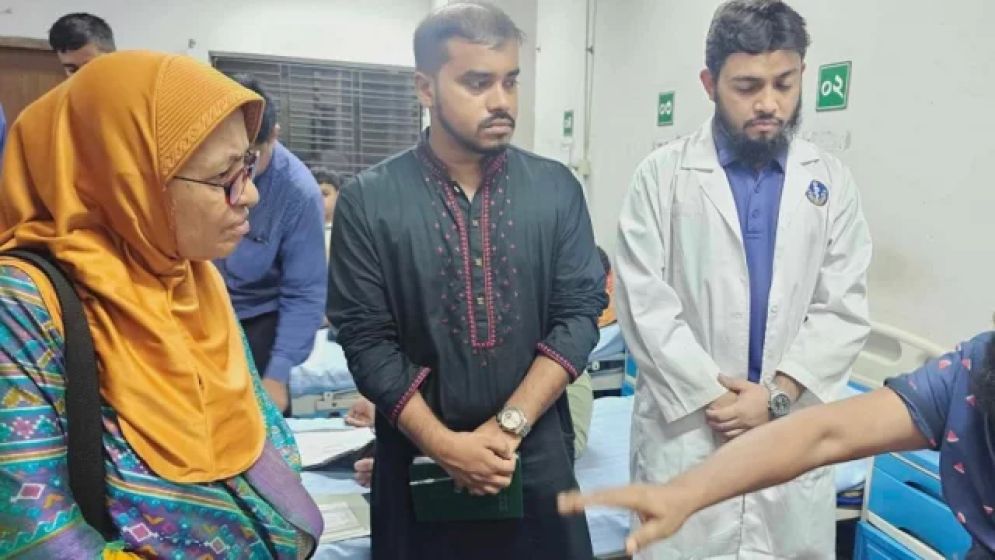Over 1000 people killed, 400 lost eyesight in student movement: Health Adviser
UNB
Publish: 30 Aug 2024, 01:46 PM

Dhaka,
Aug 30 (UNB)-The interim government's Health Adviser Nurjahan Begum said over
1,000 people had been killed and over 400 students lost their eyesight in the
recent student-led mass upsurge that toppled the Awami League government.
She disclosed the
figures while visiting the injured police personnel and others undergoing
treatment at Central Police Hospital (CPH) in Dhaka's Rajarbagh on Wednesday,
said a media release signed by Mohammad Shahdat Hossain, senior information
officer of the Ministry of Health and Family Welfare Affairs .
"So far, over a
thousand people have been reported dead and more than 400 students have lost
their vision, with many having lost sight in one or both eyes," she said.
Replying to a question,
the health adviser said many police officers at the hospital have sustained
injuries, with some suffering from wounds to their legs and others from head
injuries and a student coordinator, who was also injured, is currently
receiving treatment there.
She informed that the government
has committed to bearing the costs of treatment for those injured and taking
responsibility for the families of the deceased.
The Seba Foundation has
been contacted to assist those with severe eye injuries, and it has agreed to
send medical teams to provide treatment as soon as possible. The patients will
receive care at the Isphahani Islamia Eye Institute, the National Institute of
Ophthalmology, and hospitals in Chattogram and Dinajpur, she shared.
The adviser also
mentioned that numerous individuals have suffered leg injuries, with some
requiring amputations. Discussions are ongoing with various donor agencies and
the World Bank to facilitate the arrival of international medical teams to
provide specialized care.
She also met with hospital
authorities and doctors to discuss the medical services being provided.
Hospital Director Deputy
Inspector General of police Sheikh Md. Rezaul Haider, other hospital officials,
doctors and members of the central sub-committee on health from the anti-discrimination
movement were present during the visit.
End/UNB//M/SU/F
